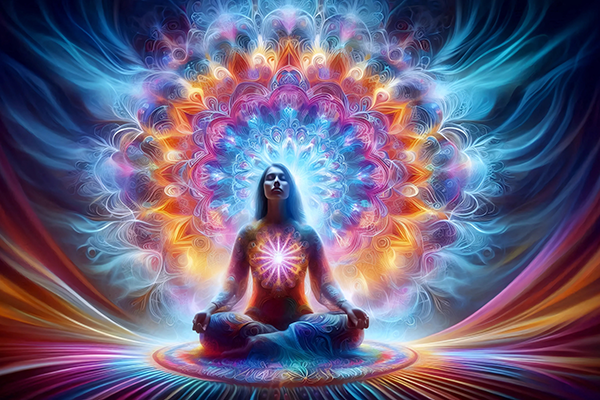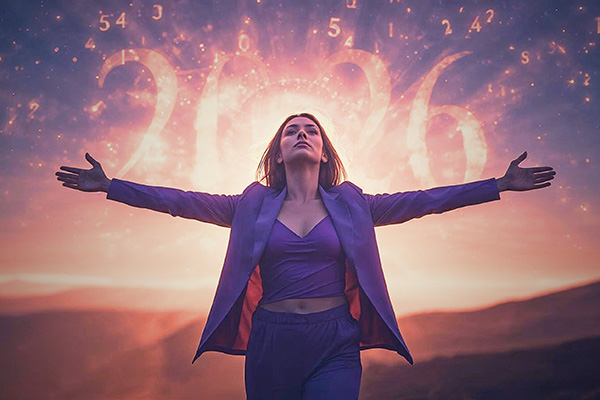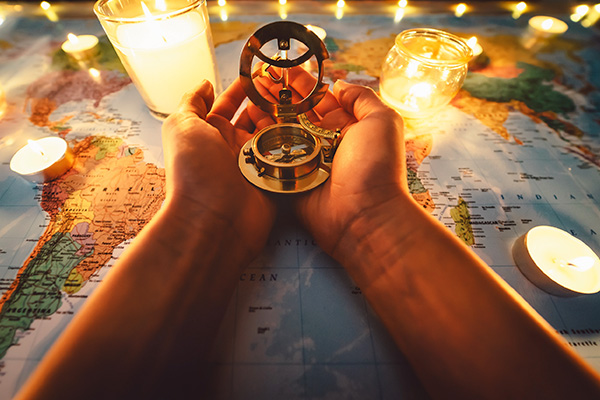authentic self
Take Out The Toxic Trash With A Self-Love Meditation
 I’ve been teaching meditation for over 30 years now, and it is something that has been widely misunderstood. It has also been hijacked by people with nefarious, materialistic agendas.
I’ve been teaching meditation for over 30 years now, and it is something that has been widely misunderstood. It has also been hijacked by people with nefarious, materialistic agendas.
Meditation is not about emptying the mind or having no thoughts. Rather, it is about removing and replacing negative thoughts, repetitive patterns, abusive programming from childhood, and conditioning imposed by sadistic or wounded individuals.
Meditation is about inviting God, Spirit, Source, the Divine back into the heart, soul, and mind.
When we are children, everything begins with love. Children are eternal optimists, even when they have been traumatized.
But almost every child encounters at least one parent, relative, teacher, classmate, or authority figure who is abusive. These individuals attempt to rid themselves of their own overflowing toxicity by dumping it onto others: verbally, emotionally, or physically. Their words become programming, much like a computer virus.
Meditation is designed to replace that negative programming. Instead of hearing “you are worthless” looping in your mind, meditation allows you to consciously replace that tape with “I am loved.”
Think about the hurtful words that were spoken or screamed at you as a child. Then, during meditation, repeat the opposite.
2026 Numerology: A Year Of New Beginnings
 Some years are subtle turning points with an inner shift or quiet sense of new beginnings. The energy of 2026 offers exactly that.
Some years are subtle turning points with an inner shift or quiet sense of new beginnings. The energy of 2026 offers exactly that.
In numerology, 2026 is a 1 Year. This is the start of a new nine-year cycle. During this time, our identity and direction become very important.
A year isn’t about finishing what you started last year. It’s about making space for new things to come out. The universe gives us a clean slate in 2026. Even if we don’t know what to write on it yet, we can feel that something inside us is ready to start fresh.
I’ve noticed this change a lot lately when I talk to people about how they feel as they go into this new cycle. Two people close to me show this energy well: one is a client and the other is a friend. Their situations are not rare, and many of us can relate to them.
The client has spent years feeling a strong desire to be more true to himself. Like many people, he hasn’t been unhappy, just not fully expressed.
He has ideas that get people excited, but he always feels “too busy” or “not ready.” He has a good career, and he’s thankful for it, but he’s not passionate about it. He feels like life is good, but not completely for him.
His story is familiar to anyone feeling the nudge to start fresh, without knowing how. The gift of a 1 Year membership is an invitation to take the first step, whether that’s exploring an interest or voicing a long-held dream. It doesn’t require a full plan. You just need the courage to begin.
Keep Shining Bright In A Darkening World
 There’s an old children’s song that says, “This little light of mine, I’m gonna let it shine.” Many of us sang it when we were young, never realizing how profound those simple words really are.
There’s an old children’s song that says, “This little light of mine, I’m gonna let it shine.” Many of us sang it when we were young, never realizing how profound those simple words really are.
As we grow up, we begin to understand that the “light” inside us isn’t just a sweet metaphor. It’s our spirit, our energy, our vibration, our soul essence. It’s who we are at the core.
And in a world that often feels heavy with noise, comparison, and negativity, protecting that inner light and letting it shine anyway, becomes one of the most courageous things we can do.
Each of us carries a unique vibration. Some people move through life weighed down by fear, anger, jealousy, or pain: energies that keep them operating on lower frequencies. Others radiate higher vibrations: love, joy, compassion, and creativity.
You can feel the difference when folks like that enter a room. They don’t need to say a word. Their presence alone speaks volumes. Their light softens the atmosphere and uplifts everyone around them.
But here’s a hard truth that many bright souls learn the hard way: light attracts attention, and not all of it is good and kind.
Those who shine brightly are also unwelcome mirrors to some. Their energy reflects back to others what still needs healing. And for some, that reflection can be very uncomfortable. Continue reading
Reclaiming The Voice Of Your Inner Child
 I always sing with my yoga students at the end of class. I used to work in the entertainment industry as a singer, dancer, and actress. Because of that, I feel confident singing in front of people.
I always sing with my yoga students at the end of class. I used to work in the entertainment industry as a singer, dancer, and actress. Because of that, I feel confident singing in front of people.
Growing up, I was always full of joy despite my dysfunctional and rather glum family. Of course, they didn’t appreciate my natural exuberance. They certainly didn’t like that I sang all the time because it represented a lightness of being they had long since given up on.
Like many dysfunctional families, they put me down all the time. They told me that I couldn’t sing and that I sounded awful. But, as with all the other negative, hurtful things they tried to convince me of, I did not believe them.
I kept singing anyway, which irked them. I continued to sing and dance, and I even wrote, produced, directed, and starred in my own musical when I was eleven.
Now I’m not saying I had a good voice as a kid. I really don’t know if I did. But, loving to sing, some voice lessons and lots of joy certainly helped me become a relatively good singer.
One day, after my yoga class, a student came up to me and told me I had a beautiful voice. I thanked her. I often have people compliment my singing voice after class.
The student then told me her family told her she had a bad singing voice when she was a child so she stopped singing. She then mentioned other abuses she received by her cruel family.
Mercury Retrograde: A Time To Revisit, Reflect And Realign
 Has it felt like the universe has been playing a cosmic prank on you lately? Maybe your phone or computer has started acting up, or your travel plans have taken an unexpected turn, or maybe every conversation feels like a confusing game of telephone?
Has it felt like the universe has been playing a cosmic prank on you lately? Maybe your phone or computer has started acting up, or your travel plans have taken an unexpected turn, or maybe every conversation feels like a confusing game of telephone?
You’re not imagining any it, and you’re definitely not alone. Blame it on the astrological phenomenon known as Mercury Retrograde.
Mercury began its current retrograde motion in the sign of Leo on July 18, 2025. This phase will last for 24 days, ending on August 11, 2025, with Mercury still positioned in Leo as it returns to direct motion.
But this energetic shift doesn’t stop there. After Mercury stations direct, we enter the shadow period, also known as the post-retrograde shadow or retroshade. This phase usually lasts for about two more weeks, meaning the lingering effects of the current retrograde may continue through August 25, 2025.
Mercury retrograde occurs three, and occasionally four, times each year due to the planet’s swift orbit around the Sun. As the innermost planet, Mercury completes this journey in just 88 Earth days.
During its retrograde phase, Mercury appears to move backward in the sky from our earthly perspective, creating a temporary disruption in its usual energetic influence. Because it is the planet that rules communication, travel, and information, its retrograde motion often stirs up confusion, delays, and misunderstandings in these areas of life.
How She Found Her Way Back
 Not every psychic reading begins in light. Some start in silence — the kind that weighs heavy in the heart.
Not every psychic reading begins in light. Some start in silence — the kind that weighs heavy in the heart.
When she first reached out to me, her question was brief, but the energy spoke volumes. There was pain behind her words, and she barely dared to ask: “Am I still in here somewhere?”
She had been in a relationship that, at first, felt exciting—perhaps even fated. “He swept me off my feet,” she once said. “I thought he saw me.”
And maybe he did, in the beginning — just enough to mirror back what she most longed to believe about herself. That she was worthy. That she was seen. That she was loved. But what unfolded was far from love.
The charm that once made her feel chosen gradually twisted into control, criticism, and a subtle erosion of her spirit. What looked like affection became possessiveness. What felt like closeness became confinement.
She had once been a vibrant, creative soul bursting with ideas and dreams.
But as time passed, she began to disappear. “I used to feel like a magical flame,” she confessed. “Now, I’m no more than a tiny heap of ashes under his tyranny.” Her sparkle had dulled. Her job unraveled. Her friendships faded.
But then she called me on Psychic Access and the runes reminded her that the embers of her true self and soul essence were still burning.
